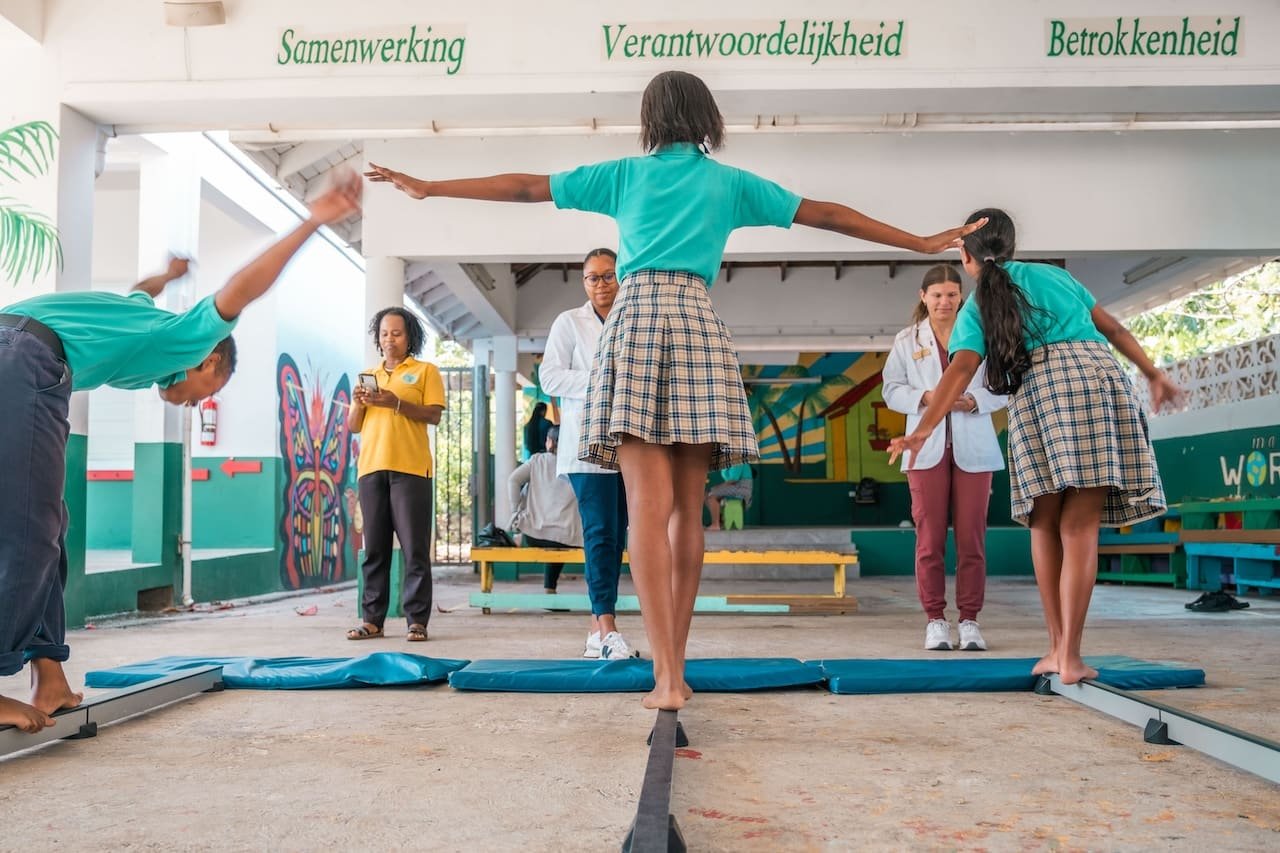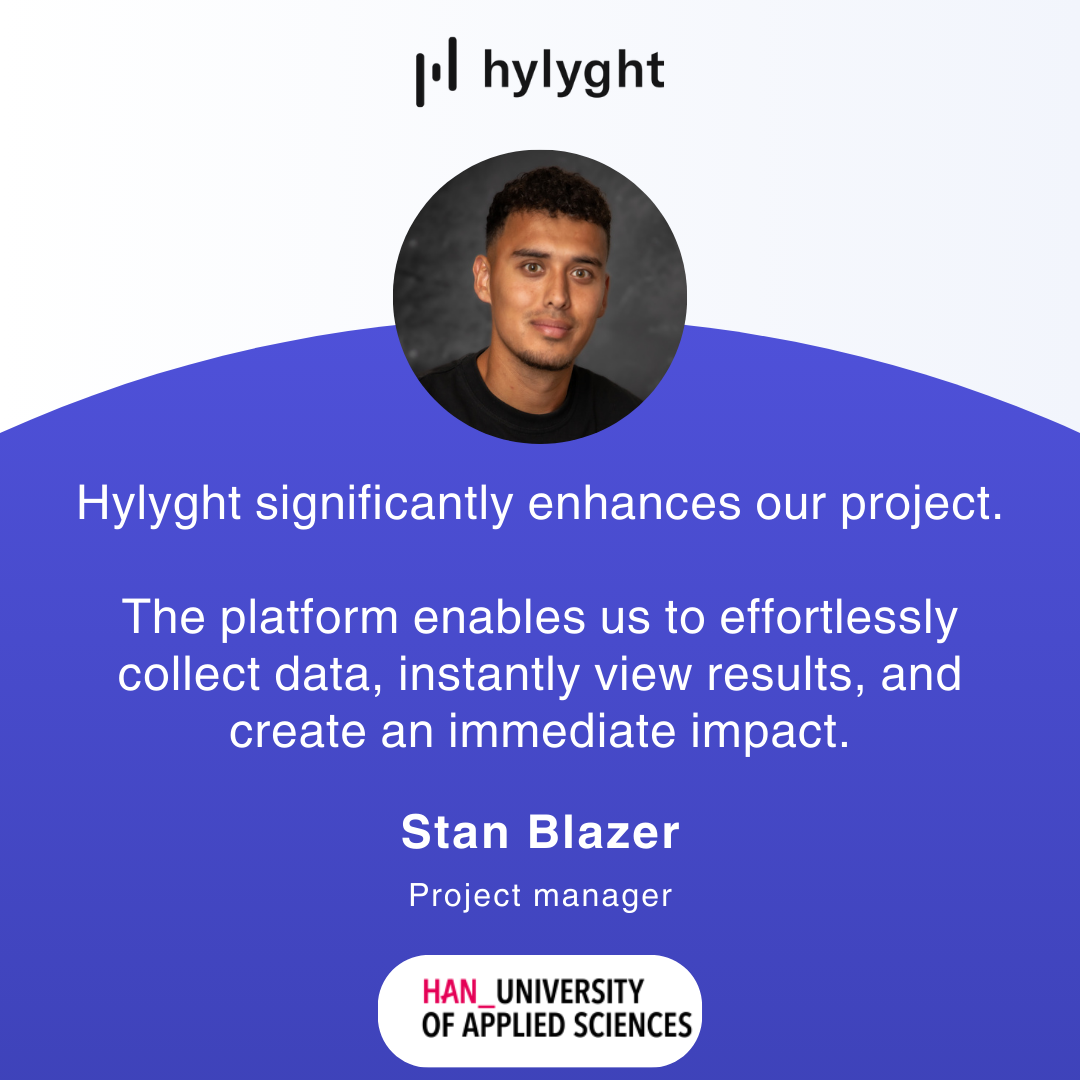Growing Up Sporty with the BLOC Test
Interview insights
Introduction
In today's world, children face increasing health risks due to insufficient physical activity. While there is a wealth of anonymous data on health and physical activity, it often lacks the integration needed to drive meaningful change. The "Growing Up Sporty" project addresses this challenge by providing a comprehensive, data-driven approach to improving children's motor skills and promoting healthier lifestyles. Initiated by HAN University of Applied Science and Topsport Gelderland and supported by municipalities across the Dutch Kingdom and the Netherlands, this project is making a significant impact.
Growing up Sporty?
The BLOC test is a set of four motor skills tests, designed to get an idea about the motor competence of primary school children. Additionally, an elaborate questionnaire about movement behavior is filled out, giving insights in the way children go to school (bike, foot, car), are participating in sports at school or in a club, are able to swim, etc. This combination provides valuable insights about each individual child and offers the chance to monitor change over the years, as specific interventions can be targeted to kids who are least active or have poor motor skills. Through targeted data analysis and collaboration between schools and local municipalities, a healthy and active lifestyle is promoted, with the ultimate goal of making every child a better mover.
Numbers and Growth
In the 2023-2024 school year, approximately 22.000 children were tested across 164 schools in more than 20 municipalities. Over 50.000 children were tested in the last 3 years. What started in Arnhem-Nijmegen has now expanded to other regions such as The Hague, Hardenberg, Overijssel, and Den Bosch. Municipalities are not testing for the sake of testing; they use the data to take targeted actions and improve children's motor skills. For example, reports at the municipal level show differences between schools or neighbourhoods. Stan Blazer is the driving force behind the project and the point of contact for all stakeholders. Mark De Niet and Jasper De Greef create customized reports for the different municipalities, making the data directly usable for policy-making and interventions.
A few success stories
Sint Maarten
Sint Maarten joined the project in 2023 and previously had no structured approach for motor skill testing. Thanks to the BLOC test, the Dutch part of the island is now fully tested. The results showed significantly lower motor coordination scores compared to Dutch children. Based on these findings the local government allocated budgets and set up targeted interventions to improve the fitness levels of the youth of Sint Maarten.
Stanislas College in Rijswijk
Stanislas College in Rijswijk uses the BLOC test to organize their sports classes. Every day starts with an hour of sports for the school. Children are tested and grouped based on their scores into 20% segments. This ensures that all children are challenged at their own level and can improve. Children who score lower might otherwise find it unenjoyable, while those who score higher might find it too easy.
Deventer
In Deventer, the municipality coordinates the BLOC test and the Growing Up Sporty tool for all schools. This ensures that the municipality maintains control and that the tests are conducted efficiently. Other municipalities follow a similar approach, with a centralized planning to unburden the schools and teachers from collecting data, so they can keep their focus on core tasks.
Ambitions and Future Plans
Looking ahead, the project aims to expand further within the Netherlands and the broader Dutch kingdom. The focus remains on enhancing every child's motor skills and reaching more children each year with data-driven tools. Ongoing research at HAN University leverages anonymized data to identify best practices, which are shared in collaborative meetings with municipalities. This ensures that newcomers can effectively implement the project and continue to drive positive change.
For more information about the project, visit the following links:
If you are interested in testing the developed digital tools for yourself, for a free 3-month trial. All tools are available in English and Dutch.
